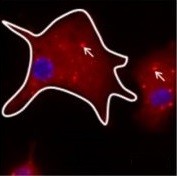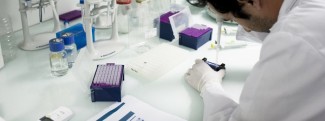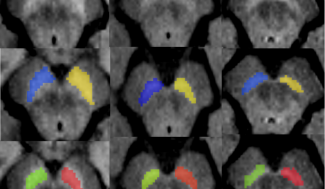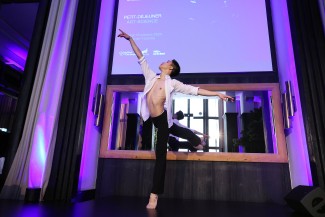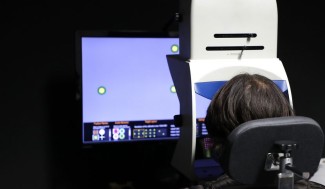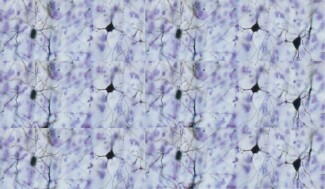Parkinson’s Disease progression
These symptoms of Parkinson’s disease are not caused directly by the loss of dopaminergic neurons, but by the accumulation of the α-synuclein protein in the different regions of the brain.
These clinical signs can also include depression, genitourinary disorders, pain, memory problems and object recognition difficulties, or even heart problems.
The patient may also have gait and balance problems that emerge later on. These symptoms occur in 20 to 80% of patients 10-15 years after disease onset.
The most widely known of the debilitating symptoms of more advanced Parkinson’s disease is ‘freezing’, an inability to initiate movement or a sudden cessation in walking caused by a loss of motor automaticity. The patients find they need to think about how to walk and feel like their feet are ‘stuck’ to the ground. This phenomenon occurs suddenly and explains why patients have an increased risk of falls.
At Paris Brain Institute
In 2018, the living lab, a collaborative unit at Paris Brain Institute-APHP, launched a participatory innovation project focused on Parkinson’s Disease.
This initiative culminated in the development of an ‘anti-freezing’ device based on the principle of creating a virtual obstacle (a laser line) in front of the Parkinson’s patient to help them start walking. This is an open access device and is offered as a ‘kit’, encouraging interaction between the patient and their caregivers during set-up, using the tutorial provided.
An innovative project that blends biology with artificial intelligence: the Sémaphore project. This collaborative project between two research teams at Paris Brain Institute, Marie Vidailhet and Stéphane Lehericy’s team and Stanley DURRLEMAN and Olivier COLLIOT team, aims to jointly collect and analyze clinical, behavioral, genetic, metabolomic and brain imaging data from a large cohort of patients using a mathematical model.The model generated will help to detect the specific biomarkers of the early stages of disease development in individuals at risk of developing the condition and to monitor the disease’s progression.Ultimately, the researchers are hoping to develop a personalized model of the disease’s progression to adapt the therapy to each patient profile.

